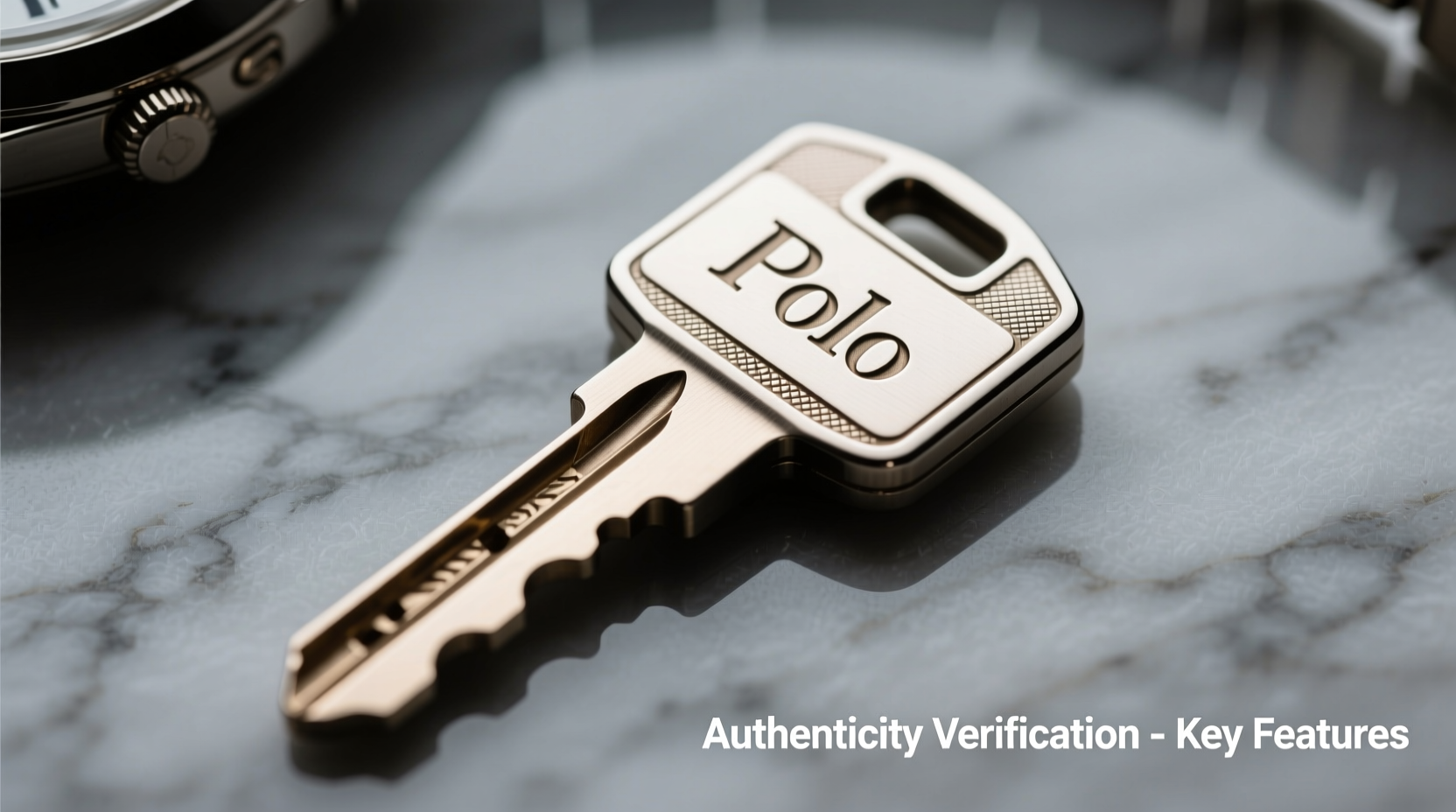Polo watches, often associated with luxury and sporty elegance, have become increasingly popular in the global market. Unfortunately, their rising demand has also led to a surge in counterfeit versions that mimic the design but lack the craftsmanship and value of genuine models. Whether you're purchasing a pre-owned piece or verifying a new acquisition, knowing how to authenticate a Polo watch is essential to protect your investment and ensure authenticity. This guide provides actionable insights, expert-backed verification techniques, and real-world examples to help you distinguish a true Polo timepiece from a fake.
Understand the Brand and Model Background

Before examining physical features, it’s crucial to understand what a legitimate Polo watch represents. While \"Polo\" is commonly linked with Ralph Lauren’s luxury watch line, other brands may use similar names or styling cues. Genuine Polo watches under the Ralph Lauren brand are precision-engineered, often Swiss-made, and feature distinctive design elements such as equestrian motifs, clean dials, and premium materials like stainless steel, sapphire crystal, and genuine leather straps.
Counterfeiters frequently mislabel generic watches as “Polo” to capitalize on brand recognition. Always confirm whether the watch falls under an authorized manufacturer. Check official websites, authorized dealers, and product catalogs to cross-reference model numbers, case back engravings, and movement types.
Inspect the Watch’s Physical Characteristics
The most reliable way to begin authentication is through a detailed visual and tactile inspection. Use a magnifying glass or jeweler’s loupe for precision. Key areas to examine include:
- Dial and Logo: The logo should be crisp, centered, and free of smudging. On authentic Polo watches, the font and spacing are consistent across models.
- Engravings: Genuine watches feature finely engraved serial numbers, model codes, and “Swiss Made” (if applicable) on the case back. Engravings should be deep, clear, and evenly spaced—not stamped or etched superficially.
- Hands and Markers: Hands should move smoothly (in mechanical or automatic models), and hour markers should align perfectly without misplacement or uneven coating.
- Crystal: Authentic models use sapphire or high-grade mineral crystal. A simple scratch test (not recommended on your own) or reflection check can help; sapphire reflects rainbow hues under light.
- Crown and Pushers: These should feel solid, click precisely, and bear the correct logo orientation. Wobbly or loose crowns are red flags.
“Attention to micro-details separates real luxury watches from convincing replicas. The finish, alignment, and weight tell more than the logo.” — Daniel Reeves, Master Watchmaker & Authentication Specialist
Verify Movement and Functionality
The internal mechanism—known as the movement—is one of the strongest indicators of authenticity. Most genuine Polo watches by Ralph Lauren use Swiss quartz or automatic movements from reputable manufacturers like ETA or Ronda.
To assess the movement:
- Listen closely: Quartz models tick once per second with a sharp, consistent sound. Counterfeits may produce a rapid ticking or irregular rhythm.
- Check the seconds hand: In automatic watches, the seconds hand glides smoothly rather than ticking. If it jerks unnaturally, it may be a low-grade quartz imitation.
- Observe power reserve: An authentic automatic watch will run for 36–48 hours when fully wound. Fake movements often stop within hours.
If possible, request a movement inspection from a certified watchmaker. They can open the case back (without damaging warranty seals if present) and identify hallmark engravings, rotor design, and movement model number.
Authentication Checklist
Use this checklist before finalizing a purchase or confirming ownership:
- ✅ Brand matches official Polo/Ralph Lauren lineup
- ✅ Serial and model number match manufacturer database
- ✅ Engravings are precise and deeply etched
- ✅ Weight feels substantial (stainless steel ~100–150g)
- ✅ Sapphire or mineral crystal with anti-reflective coating
- ✅ Smooth operation of crown, date wheel, and pushers
- ✅ Movement type consistent with model specs (quartz/automatic)
- ✅ Packaging includes branded box, warranty card, and manual
- ✅ Seller provides proof of purchase or service history
Compare Real vs. Fake: Key Differences at a Glance
| Feature | Genuine Polo Watch | Fake Polo Watch |
|---|---|---|
| Logo Quality | Sharp, centered, consistent font | Blurry, misaligned, or incorrect font |
| Case Back | Laser-engraved serial number, “Swiss Made” | Stickered label or shallow engraving |
| Movement | Swiss quartz or automatic, smooth sweep | Generic Asian quartz, jittery tick |
| Weight | Heavy due to solid metal construction | Lightweight, possibly hollow or plastic-based |
| Crystal | Sapphire or high-grade mineral, scratch-resistant | Plastic or low-tier mineral, easily scratched |
| Price | $500–$5,000+ depending on model | Often sold below $200 online |
Real-World Example: Avoiding a Costly Mistake
Mark, a collector based in Chicago, found a “Polo Ralph Lauren Automatic” on an online marketplace for $180—a fraction of its retail price. The photos looked convincing, and the seller claimed it was “gently used.” He requested additional images, including close-ups of the dial, case back, and movement through the exhibition case.
Upon inspection, he noticed the second hand had a slight stutter, the engraving on the case back appeared too shallow, and the crown logo was slightly off-center. He contacted Ralph Lauren Customer Service with the serial number provided in the listing photo. The response? “No record of this serial number in our system.” Mark avoided a scam and reported the listing. This case underscores the importance of verification beyond aesthetics.
Step-by-Step Guide to Authenticating Your Polo Watch
Follow these steps systematically to verify authenticity:
- Gather Documentation: Collect the original box, warranty card, receipt, and any service records. Genuine watches come with branded packaging and a signed warranty card with a dealer stamp.
- Locate the Serial Number: Found on the case back or between the lugs, this unique identifier is critical. Cross-check it with the manufacturer or an authorized dealer.
- Examine Craftsmanship: Inspect every component under bright light and magnification. Look for uneven finishing, glue residue, or misaligned parts.
- Test Functionality: Ensure the crown adjusts time/date correctly, the clasp works securely, and the movement runs consistently.
- Consult a Professional: Take the watch to a certified watchmaker or luxury retailer for a formal evaluation. Some offer authentication services for a fee.
Frequently Asked Questions
Can I authenticate a Polo watch using just the serial number?
Yes, but only if the number is verified through official channels. Ralph Lauren maintains a database for registered timepieces. However, some older models may not be traceable online. Always pair serial checks with physical inspection.
Are all cheap Polo watches fake?
Not necessarily, but extreme discounts are suspicious. Authorized retailers rarely discount Polo watches more than 20–30%. Watches sold far below market value on third-party sites are often counterfeit or stolen.
What should I do if I’ve bought a fake Polo watch?
Contact the seller immediately and request a refund. If purchased through a platform like eBay or Amazon, file a dispute. Report the listing to protect others. Consider consulting consumer protection agencies if fraud is suspected.
Final Thoughts: Protect Your Investment
Authenticating a Polo watch isn’t just about avoiding fakes—it’s about respecting the artistry and engineering behind genuine luxury timepieces. With counterfeits growing more sophisticated, relying on instinct isn’t enough. Combine research, inspection, and expert validation to ensure confidence in your purchase.









 浙公网安备
33010002000092号
浙公网安备
33010002000092号 浙B2-20120091-4
浙B2-20120091-4
Comments
No comments yet. Why don't you start the discussion?